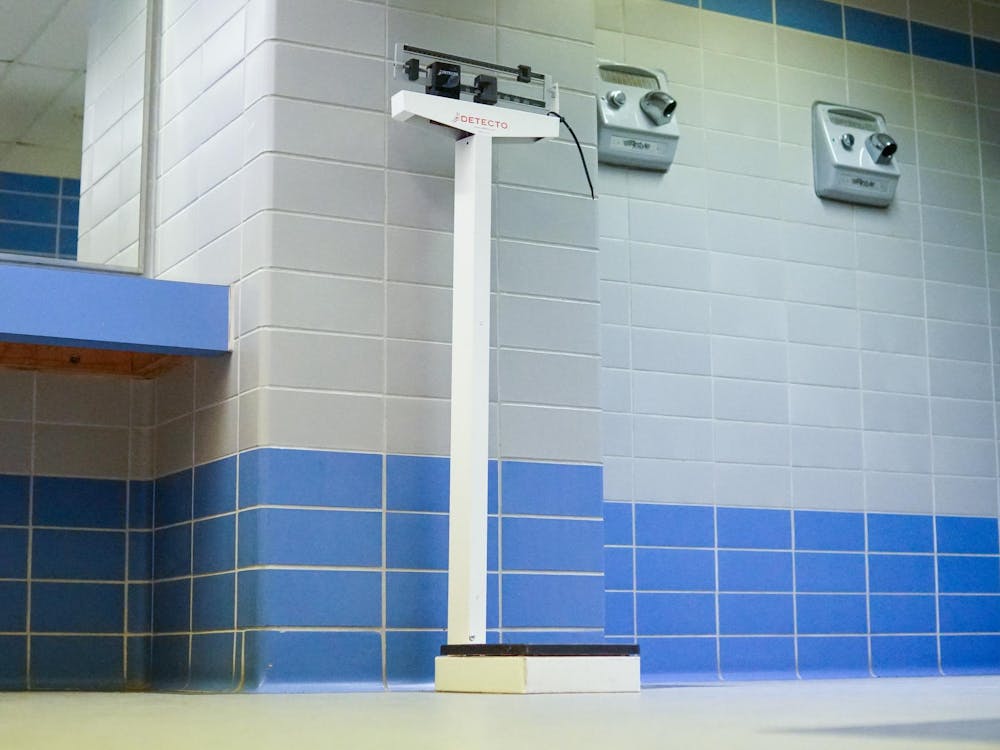Christopher Stephens is a junior journalism and telecommunications major and writes “An Obvious Proposal” for the Daily News. His views do not necessarily agree with those of the newspaper. Write to Christopher at castephens@bsu.edu.
 |
|---|
One dollar. That’s all it would cost each student at Ball State to cut their chance of a university police officer physically harming them by around half.
That is what two studies of the effects of police-worn body cameras say about the device – cops are less likely to use force and criminals are less likely to escalate situations if they know they are being filmed.
A Cambridge University study, partnering with the police department of Rialto, Calif., found that police use-of-force incidents went down 60 percent and citizen complaints against officers fell 88 percent in the first year. The next year they were further down 46 and 83 percent.
Another study by the Mesa Police Department in Arizona found when 50 officers wore cameras, complaints dropped by about a third and specifically use-of-force complaints dropped by 75 percent.
That is astounding: and the cost per student to do all of this at Ball State, to film every time police come in contact with students and lessen the number of times police use force to subdue suspects: a little less than a buck. Taser, the same company that invented electronic stun guns, offers police body cameras for $400 with batteries that last 12 hours and automatically upload video to their servers after each officer’s shift for $15 a month. Total start-up cost for Ball State’s 33 officers: $13,200 for the cameras and another $5,940 a year for video storage.
The deal is so appealing that President Barack Obama announced last month that the government will buy cameras for 50,000 officers across the country. The Los Angeles Police Department, the third largest force in the nation, just pledged to put a camera on every single one of the its officers over the next couple years.
More than that, Muncie’s local police department has recently outfitted their officers with body cameras.
It’s absurd that the University Police Department has yet to take this easy and cheap step that could protect students from overzealous police officers and stop a drunken college kid from yelling at or hitting an officer if he knows the incident could be shown at his eventual trial.
Universtiy Police Chief Duckham said the department is “looking into a top-to-bottom analysis of what’s effective in policing today...,” but he has yet to make any concrete plans. Body cameras offer an easy and cheap way to implement new technology with few downsides.
Sure, body cameras aren’t magic bullets, or more aptly, magic stun guns, that stop officers and criminals from hurting each other. But the chance of stopping one officer or student from getting hurt is certainly worth the money and hassle of remembering to turn them on.
They also wouldn’t offer an end-all be-all solution to determining guilt in instances where it is one person’s word against another’s but having unedited and unbiased documentation of what happened, at least from the officer’s perspective, would go a long way to helping judges and juries decide.
The possibility of an invasion of privacy is also there, but that is why every camera has an off button. If an officer is speaking to a victim of sexual assault or a witness that is afraid of retaliation, all they have to do is reach to their chest pocket and flip a switch.
Or, after each officer’s shift they simply make a note for their superior to mark the part of the tape that should not be released in any place outside of a trial against a formally accused criminal.
Cameras do much more than just make everyone think before they do something stupid.
Almost everyone has at least wondered what would have happened in Ferguson, Mo., if the event would have been caught on tape. Would there have been the riots and violence if we could have seen video of what happened instead of relying on often-conflicting witness testimony?
Ball State has the money to purchase cameras for its officers; after all, it isn’t like its free to attend Ball State.
But, if there isn't any wiggle room in the budget for it, I for one would be okay with a $1 raise in tuition. $1 would be worth it if it means even a minuscule chance of avoiding injury on anyone's part when dealing with police.





